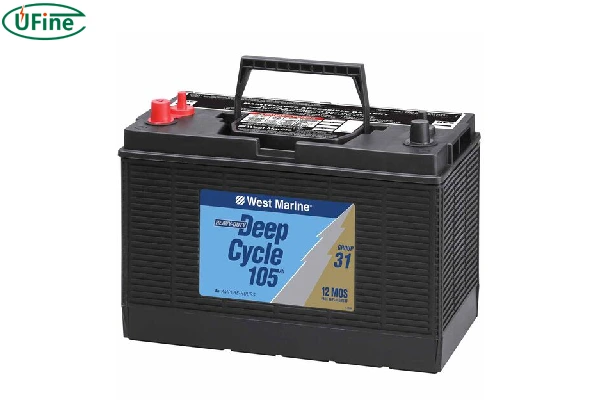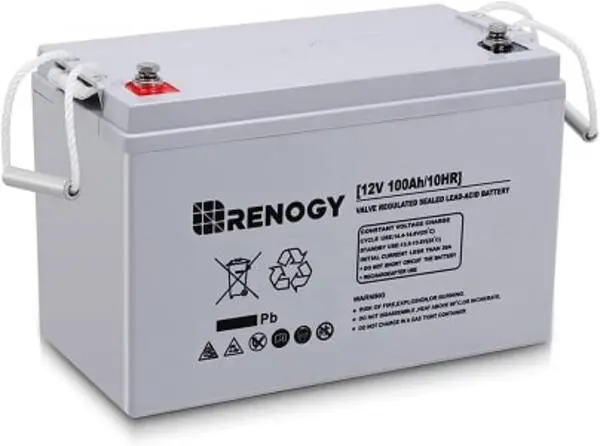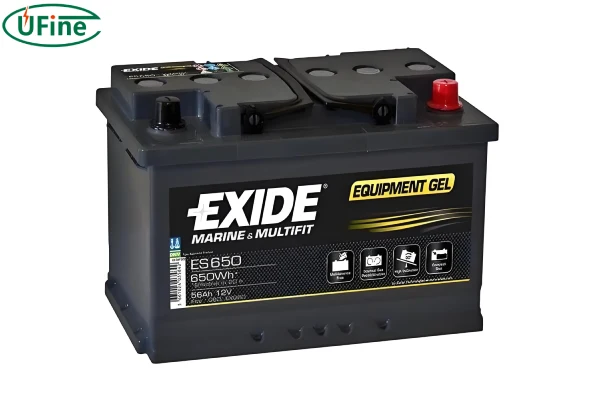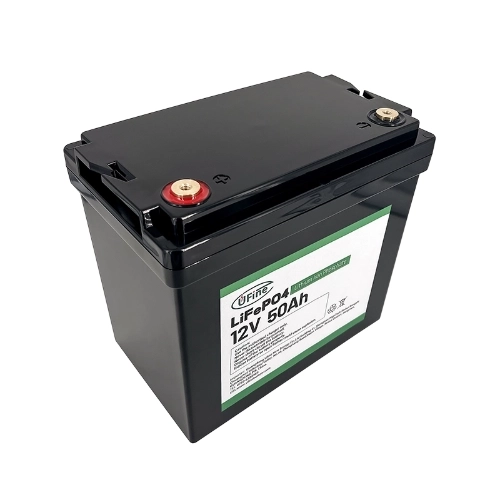
When it comes to four-wheelers, a reliable battery is crucial for performance and longevity. The right battery ensures that your vehicle starts easily, runs smoothly, and provides sufficient power to all electrical components. However, with so many types of batteries on the market, how do you choose the best one? In this detailed guide, we’ll dive into the key factors to consider when buying a four-wheeler battery, the pros and cons of different battery types, and how to make an informed choice that meets your needs.
Part 1. Buying a four wheeler battery: key parameters
Before purchasing a battery for your four wheeler, you should carefully evaluate several key parameters. These factors will directly influence how well the battery performs, how long it lasts, and whether it’s suitable for your specific vehicle.
a. Battery Capacity (Ah)
Battery capacity is measured in ampere-hours (Ah) and indicates how much energy the battery can store. This figure tells you how long the battery can power your four wheeler before it needs recharging. The higher the Ah rating, the longer the battery will last on a single charge. For most four wheelers, capacities range from 10Ah to 30Ah, depending on the size of the vehicle and its energy needs. If your vehicle has additional electrical accessories such as lights, winches, or GPS systems, you may need a higher capacity battery.
b. Cold Cranking Amps (CCA)
Cold Cranking Amps (CCA) is a crucial factor, especially for those who operate their four wheelers in cold climates. CCA measures a battery’s ability to start an engine in cold temperatures. A higher CCA rating means that the battery will perform better in low temperatures, making it easier to start your engine even on frosty mornings. For four wheelers, look for a battery with at least 200 to 300 CCA, depending on your climate. Batteries with high CCA ratings are generally more powerful and reliable, particularly in extreme weather.
c. Voltage
Most four wheelers run on a standard 12-volt battery. However, it’s essential to verify your vehicle’s voltage requirements before making a purchase. Installing a battery with the wrong voltage can cause electrical damage or fail to provide sufficient power. While 12V is the norm, some high-performance ATVs or specialized utility vehicles may require a different voltage, so always check your owner’s manual.
d. Size and Terminal Position
Batteries come in various sizes, and it’s crucial to choose one that fits your four wheeler’s battery compartment. A mismatch in size could result in installation difficulties or leave the battery loose, causing vibration-related damage over time. Along with size, terminal positioning (where the battery’s positive and negative terminals are located) is also important. Ensure the terminal layout matches your vehicle’s wiring configuration to avoid complications during installation.
e. Maintenance Requirements
Batteries come in two main categories: maintenance-free and those that require regular care. Flooded lead-acid batteries often need periodic refilling with distilled water, while AGM (Absorbed Glass Mat) and lithium-ion batteries are sealed and maintenance-free. If you prefer a hassle-free experience, it’s better to opt for a maintenance-free battery that doesn’t require frequent attention.
Part 2. Four wheeler battery types
There are several types of batteries designed for four wheelers, each with its own set of advantages and disadvantages. Let’s explore the most common options.
a. Lead-Acid Batteries (Flooded)
Flooded lead-acid batteries are one of the oldest and most widely used battery types. They work by immersing lead plates in a liquid electrolyte solution (sulfuric acid and water).
- Advantages: These batteries are affordable and widely available. They are durable and can deliver strong currents, making them a reliable choice for four wheelers.
- Disadvantages: Lead-acid batteries require regular maintenance, such as checking electrolyte levels and topping off with distilled water. They are also heavy and can spill if not handled properly.
b. AGM (Absorbed Glass Mat) Batteries
AGM batteries are an advanced version of lead-acid batteries. They use a glass mat separator between the plates, which absorbs the electrolyte, making them spill-proof.
- Advantages: AGM batteries are maintenance-free, have a longer lifespan than traditional lead-acid batteries, and are more resistant to vibration, which is a common issue in off-road vehicles. They also offer better performance in extreme temperatures.
- Disadvantages: AGM batteries are more expensive than lead-acid batteries and may not be necessary for users who don’t need the added durability or power.
c. Gel Batteries
Gel batteries are another form of lead-acid battery, but they use a gel electrolyte instead of a liquid.
- Advantages: These batteries are spill-proof, require no maintenance, and perform well in extreme conditions. They also last longer than traditional lead-acid batteries.
- Disadvantages: Gel batteries are less powerful than AGM batteries and can be damaged by improper charging.
d. Lithium-Ion Batteries
Lithium-ion(LiFePO4) batteries are the newest technology available for four wheelers. They are lightweight and pack more power into a smaller, more compact unit.
- Advantages: Lithium-ion batteries have a much longer lifespan, are lighter, and charge faster than any other battery type. They maintain consistent performance even under extreme conditions and are maintenance-free.
- Disadvantages: The main drawback of lithium-ion batteries is their high cost. They are significantly more expensive than other options and may require a specific charging system.
Part 3. How to choose a four wheeler battery
Choosing the best battery for your four wheeler depends on several factors:
a. Vehicle Requirements
Always consult your vehicle’s manual to determine the correct battery specifications, including size, voltage, and CCA rating. Installing a battery with incompatible specifications could damage your vehicle’s electrical system.
b. Climate
Consider the environment in which you’ll be using your four wheeler. If you frequently operate in cold conditions, a battery with a higher CCA rating is essential. For hot climates, choose a battery that can withstand high temperatures without degrading.
c. Performance Needs
If your four wheeler is equipped with additional electrical accessories, like winches or lighting, you may need a higher-capacity battery. Similarly, if you use your vehicle for long rides or off-road adventures, a more durable and long-lasting battery such as an AGM or lithium-ion battery is ideal.
d. Budget
Your budget plays a crucial role in your choice. Lead-acid batteries are the most affordable, while lithium-ion batteries are the most expensive but offer the best performance. AGM batteries strike a good balance between price and longevity.
e. Maintenance
If you prefer a maintenance-free experience, opt for AGM or lithium-ion batteries. Lead-acid batteries require regular care, which might not be ideal if you’re looking for convenience.
Part 4. Which four wheeler battery is the best?
So, which battery is the best for your four wheeler? The answer depends on your specific needs.
- For budget-conscious buyers: A lead-acid battery is a cost-effective option, provided you don’t mind the extra maintenance.
- For off-road enthusiasts: AGM batteries are an excellent choice due to their durability, resistance to vibration, and maintenance-free nature.
- For maximum performance: Lithium-ion batteries are the best in terms of lifespan, weight, and charging speed. If you’re willing to invest more upfront, they offer unmatched performance.
- For extreme climates: Gel or AGM batteries are ideal, as they perform well in both hot and cold conditions and offer good resistance to environmental stress.
Part 5. Final words
Selecting the right four wheeler battery is crucial for optimal performance and longevity. By understanding the key parameters, comparing battery types, and assessing your specific needs, you can confidently choose the best battery for your vehicle. Whether you prioritize cost, durability, or performance, there’s a battery out there that’s perfect for your four wheeler.
Related Tags:
More Articles
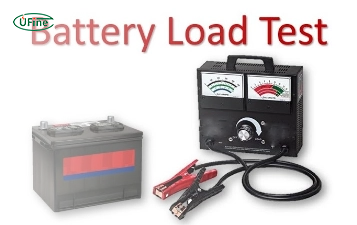
Battery Load Test: A Comprehensive Guide
Step-by-step battery load test guide for car, solar & industrial use. Learn how to load test a battery, interpret voltage charts, and avoid common mistakes.
The Comprehensive Guide to Battery Balancing and Battery Balancer
Discover how battery balancers improve lithium battery performance, lifespan, and safety. Learn types, functions, and tips to choose the right balancer.
What Is the Best Voltage for a Chainsaw Battery?
Compare 12V-80V chainsaw batteries for light pruning, medium firewood, and professional cutting. See best battery chainsaw with runtime charts and safety tips.
Lithium VS. Alkaline Batteries: A Comprehensive Comparison
Lithium batteries last 3–7× longer than alkaline and perform better in cold weather. Compare lifespan, cost, safety, and best uses to choose the right battery.
Comparing Lithium-Sulfur and Lithium-Ion Batteries: Which is Right for You?
Compare lithium-sulfur (Li-S) and lithium-ion batteries on energy, lifespan, cost, safety, and applications. Best choice for drones, EVs, and electronics.

